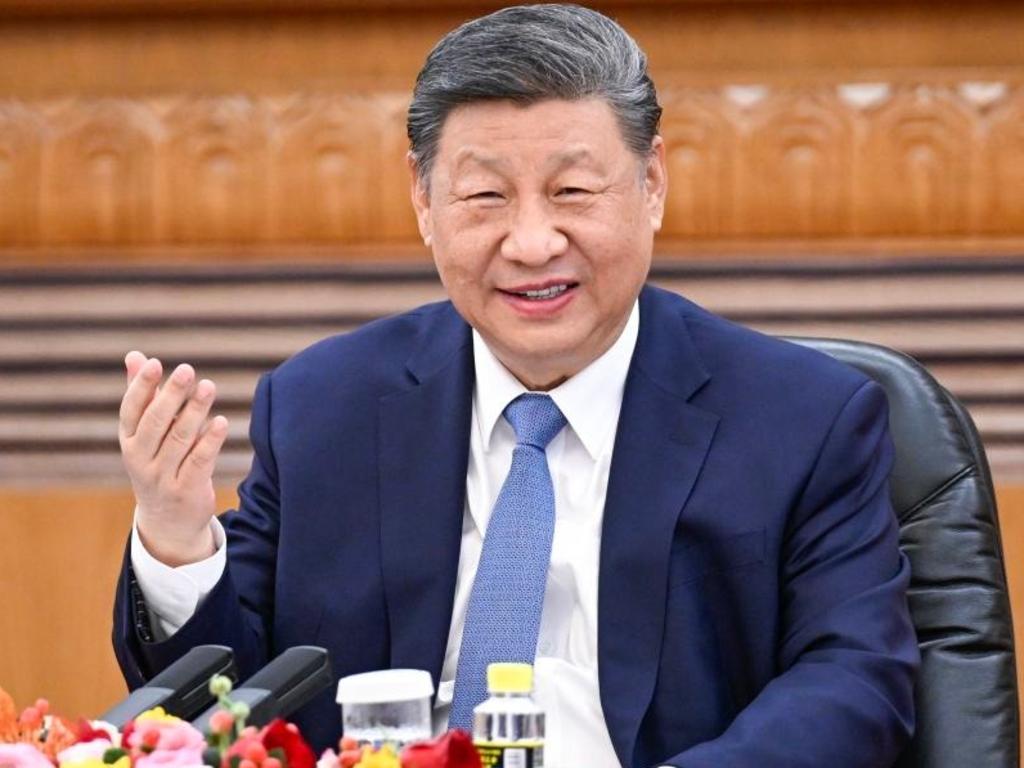Malaysia PM Anwar Ibrahim vows united ASEAN response to US tariffs
ASEAN’s silence in the wake of US tariff announcements has stoked fears some members may try to carve out a bilateral advantage.

Malaysian Prime Minister Anwar Ibrahim has vowed to lead a united ASEAN front against US export taxes as regional economic ministers and central bank governors began meeting in Kuala Lumpur on Monday to discuss the fallout, and China flagged a presidential tour of tariff-hit neighbours.
“Malaysia, as ASEAN chair, will lead efforts to present a united regional front, maintain open and resilient supply chains, and ensure ASEAN’s collective voice is heard clearly and firmly on the international stage,” Anwar said in a video posted on social media.
Anwar, the current chair of the Association of Southeast Asian Nations bloc, said he met with Indonesian President Prabowo Subianto on Sunday and spoke also with Vietnamese Prime Minister Pham Minh Chinh to discuss a collective regional response to the shock imposts announced last Thursday.
ASEAN’s silence in the wake of the tariff announcements has stoked fears some members may try to carve out a bilateral advantage at the expense of neighbouring countries facing relatively higher imposts.
Officials in Indonesia, The Philippines and further afield in India have all hinted their exporters could benefit from variable tariff rates.
Late on Monday Indonesia’s co-ordinating minister for economic affairs Airlangga Hartato said he would be heading to DC next week with foreign minister Sugiono to try to hammer out a trade deal that would likely include buying more American cotton, wheat and oil and relaxing some of the country’s most restrictive non-tariff barriers including mandated local content requirements for companies such as Apple.
Asian markets took a hammering in early trade on Monday after China’s weekend announcement of retaliatory action against the White House’s 54 per cent tax on Chinese goods, with Singapore suffering its deepest slip (8.7 per cent) since the 2008 global financial crisis.

The ASEAN meeting comes as Xi Jinping prepares to visit Southeast Asia as Beijing pursues closer trade ties with affected nations and refashions itself as a defender of international trading rules.
The Chinese President will tour Vietnam, Cambodia and Malaysia in the next fortnight, three ASEAN states hard hit by US President Donald Trump’s tariffs (46, 49 and 24 per cent respectively) that come into force this week. Last week, Mr Xi called for India and China to work more closely together in what he called a “dragon-elephant tango”.

Chinese officials began touring European nations last week to encourage closer trade ties aimed at mitigating the impact of US tariffs, while also seeking to ease concerns over Beijing’s economic coercion and military aggression.
Many of China’s Asian neighbours hold similar concerns, notwithstanding the fact Beijing is now the largest trading partner of all ASEAN nations and the second largest for the regional bloc behind intra-ASEAN trade.
Underscoring those concerns, Chinese officials converged on Cambodia’s World War II-era Ream naval base on Saturday to mark the completion of Chinese-sponsored upgrades which Beijing says is aimed at simply safeguarding trade routes, even as many fear China sees it as a potential defence asset.
Still, with tariffs roiling Asian markets, ASEAN is being urged to ease internal trade barriers as well as barriers to trade with East Asia and Europe.
Potential measures could include broadening membership of multilateral trade deals such as the Comprehensive and Progressive Agreement for trans-Pacific Partnership to Brussels and Beijing, offsetting US protectionism by creating one of the world’s largest free-trade areas.
Some experts have likened the White House tariffs to the 1970s oil shock, estimating the full impact of the imposts on Southeast Asia – should they proceed as announced – could hit harder than the 2008 global financial crisis.
International Chamber of Commerce secretary-general John Denton warned at the weekend of an “existential” risk to ASEAN given the region’s key role in the China-Plus-One strategy to diversify production bases outside of China and its exposure to the US market. The US imposts put a stop to that trade-rerouting.
Mr Trump has accused China of a “panicked” response with its retaliatory 34 per cent impost on US goods. But Asia Society Policy Institute vice-president international security Daniel Russel said China’s response was “calibrated and deliberate … carefully hitting companies and swing-state interests, aiming where it will sting”. “This isn’t a reflexive tit-for-tat. Beijing is hitting firms and sectors that matter politically to Trump,” Mr Russel said.
“While Trump tweets in all caps, Xi Jinping is travelling around Southeast Asia, reaching out to Europe, and bolstering China’s influence in the Global South.”






To join the conversation, please log in. Don't have an account? Register
Join the conversation, you are commenting as Logout